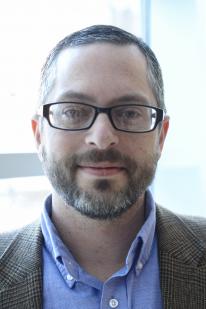Researcher Spotlight: Logan Spector
The CGHSR Researcher Spotlight features global health researchers from the University of Minnesota and its partner sites.
UMN Researcher: Logan Spector, PhD, Professor, Department of Pediatrics, Medical School
Research Site: Brazil
Dr. Logan Spector is an available mentor for the CGHSR Scholars Program. In our second researcher spotlight, he answers a few of our questions on his childhood cancer research and what he looks for in a mentee.
Q: What do you study?
A: I study the causes of childhood cancer––environmental and genetic––in order to enable risk prediction, early detection, and eventually prevention.
Q: Why do you think this research is important?
A: Childhood cancer is the leading cause of death due to disease in U.S. children; worldwide there are nearly 300,000 incident cases per year.
Q: Why is it important for you to conduct research at international sites?
A: Childhood cancer is rare, so international collaboration is necessary for a larger sample size. Also, most genetic work has been in children of primarily European descent, which must be rectified.
Q: Where do you conduct research?
A: My childhood cancer research is conducted in the U.S. through the Children's Oncology Group and internationally through the Childhood Leukemia International Consortium. It also has deepening ties to Brazil. In Brazil, I am working with the pediatric oncology unit at Santa Marcelina hospital in a poor area of Sao Paulo called Itaquera. In addition, I collaborate with colleagues at a medical school in Sao Paulo––Faculdade de Ciências Médicas da Santa Casa de São Paulo––and at the Brazilian National Cancer Institute (INCa) to accomplish larger-scale research.
Q: What do you look for in a mentee?
A: Enthusiasm for the cause, writing ability, and a quantitative mindset. I take mentoring seriously and strive to be available and helpful to my mentees.
Q: Do your trainees need to have language abilities in Portuguese or other languages?
While English is not widely spoken in Brazil, it is common enough among those engaged in science to get by. Those with a working knowledge of Spanish will find it easy to understand signage, and occasionally to make themselves understood to speakers of Portuguese.
Q: What types of work would a trainee or student engage in while working with you and your research? What ways have students contributed to your research in the past?
Creating, assaying, and analyzing molecular and genetic epidemiologic studies of pediatric cancer in the Brazilian population. I have had students from Brazil come to Minnesota for two months each winter to work on data, but have not yet sent U.S. students to Brazil.
If you would like your global health research to be featured in the upcoming Researcher Spotlight series, please contact CGHSR at [email protected].
Researcher Spotlights
Discover more about our other CGHSR Researcher Spotlights that feature global health researchers from the University of Minnesota and its partner sites.

